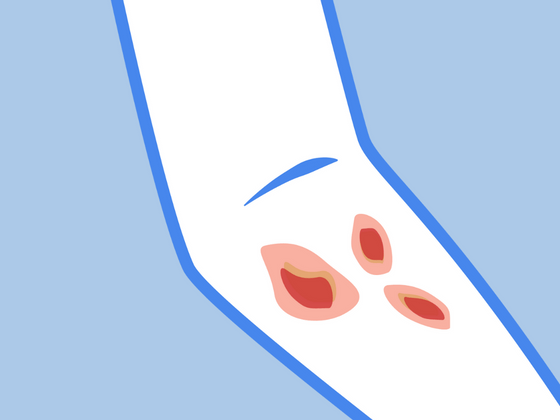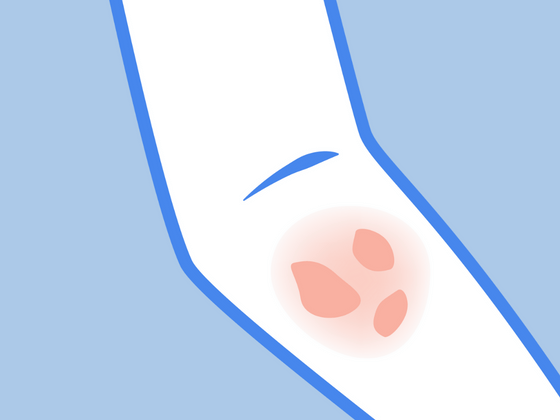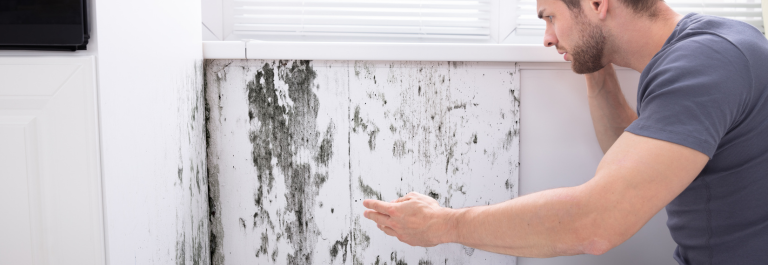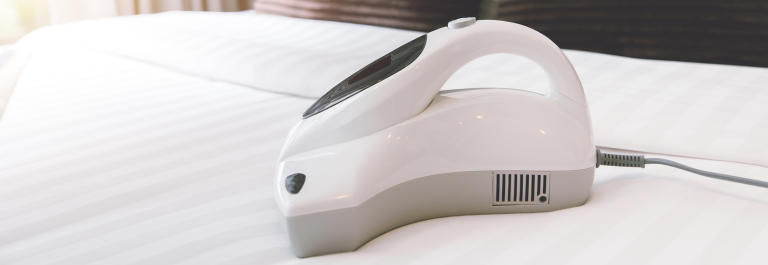The nights are drawing in, the air is getting colder, and your skin is drying out! If this feels familiar, know that you're not alone.
During the cold winter, dry air can wreak havoc on eczema-prone skin. That's why, throughout this post, we're here to cover everything you need to know about:
-
Winter eczema symptoms
-
Why eczema flares can get worse during the winter months
-
How to treat eczema naturally and effectively
Keep reading to learn more about how to keep your skin feeling nourished, supple, and hydrated...even throughout winter.
Eczema Symptoms
Eczema is a chronic skin condition caused by genetic and environmental factors. While most children outgrow eczema, for others, it remains a life-long condition requiring continuous management to avoid flare-ups.
One of the most common varieties of eczema is atopic dermatitis, which is characterized by:
-
Itchy, scaly patches of dehydrated skin typically develop across the backs of the knees, the eyes of the elbows, your hands, and your feet.
-
Skin discoloration, with dry patches appearing red on paler skin and brown or ashen grey for people with darker skin tones
-
Cracked skin, which may weep or bleed
-
Raw and sensitive skin
-
Small, raised bumps
Who Is Most At Risk of Eczema?
Studies have found that eczema flares tend to be most prevalent for people with a family history of the skin condition, as well as hay fever or food allergies.
Winter Flares: Why Does Eczema Get Worse In Cold Air?
There are many reasons why atopic dermatitis flares tend to be more frequent during the winter months, ranging from a sudden drop in the air's humidity to the scratchy fibers of your winter gloves.
If you've been struck by an eczema break-out, let's take a look at some of the main culprits:
Moisture Loss
For people with eczema, living with a weakened skin barrier can lead to excessive dehydration, as the skin struggles to absorb and retain moisture.
This is exasperated during the cold weather when dry, hard air strips your skin of its natural oils and leads to an itchy build-up of dead skin cells. When you're out and about in the winter, any areas of exposed skin will be particularly vulnerable, most often the delicate skin of your hands.
Rapid Temperature Changes
On top of this, skin irritations can also be caused by quick changes in your body temperature, such as plunging your hands into a basin of hot water after shoveling snow or throwing on the indoor heating system after hurrying in from the dry winter air.
While taking a steamy shower might be very tempting, piping hot baths or showers can damage the skin's surface, weakening your skin barrier further and triggering an atopic dermatitis flare. Use warm water instead to avoid over-drying.
Sweating: How Cosy Is Too Cosy?
During the winter months, it's also natural to want to throw on extra bed coverings or cozy up in a bundle of warm clothing. But how comfy is too comfy?
The side-effect is all these extra layers tend to make you sweat more, coating your skin in a salty residue, which can lead to dehydration, stinging, and itchiness, making eczema worse.
Allergens and Irritants
People with eczema also experience a compromised skin microbiome.
This leaves the immune system hypersensitive to environmental triggers, allergens, and irritants, such as the scratchy fibers in your favorite winter jumper, the harsh chemicals in your seasonally-scented new hand wash, or the pet dander floating around your relative's living room when you visit for the holidays.
When these allergens or irritants come into contact with your skin barrier, your immune system triggers your body's inflammatory response, causing a contact dermatitis rash.
Food allergies can also be a leading cause of atopic dermatitis and eczema flares.
How To Treat Winter Eczema?
Living with eczema-prone skin shouldn't have you cramp your style this winter.
That's why we've got many tips and tricks to help you soothe your itchy skin, whether trying to heal a pre-existing eczema flare or prevent any future irritations.
Moisturize Regularly
Moisturizer is your best friend this winter, helping you to keep your skin soft, supple, and hydrated.
To avoid triggering contact dermatitis, we'd recommend finding a moisturizer that uses natural ingredients. For example, shea butter is fantastic for boosting hydration.
Particularly in severe cases where you have cracked or inflamed skin, we'd suggest trying out the Super Dry Soother - This creamy balm is made especially for dry, chapped, rough hands and feet and winter skin. The herbs in this formula are traditionally used to promote circulation and accelerate healing.
Use An Anti-Itch Spray
Keep a bottle of Eczemol OTC Topical Eczema Spray in your handbag for fast winter eczema relief on the go.
Described as 'first aid in a bottle,' at the heart of this non-toxic eczema spray lies the superpower ingredient: hypochlorous acid (HOCl). Beloved by dermatologists for its skin-healing prowess, it mimics your body's natural defense response, aiding skin repair.
Apply directly onto your eczema flare-ups, then let air dry. Apply two or more times daily or as needed.
Wear Soft Fabrics
One of the best ways to protect your exposed skin from the harsh cold is to wear gloves, cozy socks, and breathable insulation layers across your body.
When it comes to keeping your kid's tootsies warm, we'd recommend these 100% Organic Cotton Socks for Eczema. Made with just the right weight of organic cotton and soft ribbing, these super soft, lightweight, 100% organic cotton socks are the perfect solution for foot, toe, or ankle eczema.
If your hands are suffering this winter, why not try these 100% Organic Cotton Gloves for Adults. These gloves are made with 100% organic cotton, making them ideal for super sensitive, dry, cracked hands or those suffering from hand eczema.
Especially if you have trouble sleeping due to itchy skin, switching your bedding out for soft, cotton sheets may also help to soothe your eczema flare-ups and avoid sweaty overheating.
Use a Humidifier
Mainly, if you live in an icy climate, investing in a humidifier this winter will help to put moisture back into the air and increase the amount of water available in your home for your skin to absorb.
Just be sure to check up on the humidifier regularly to avoid bacteria and fungi growth.
Take Care Of Your Sensitive Skin This Winter
Follow these tips to help you and your loved ones manage eczema this winter, treating your eczema flare-ups naturally and effectively while boosting your skin's hydration.








